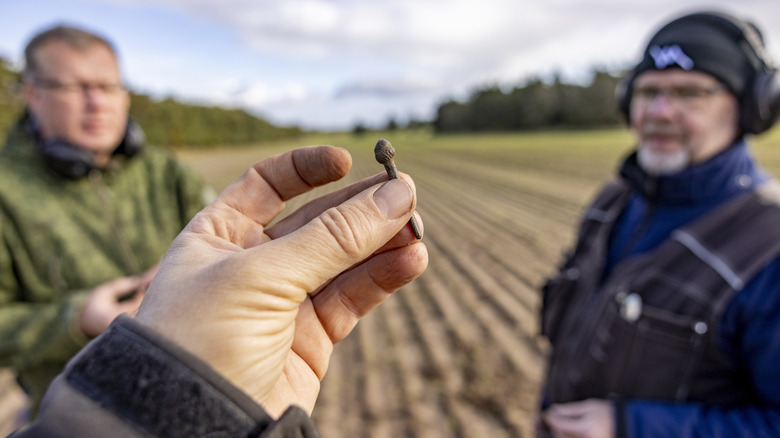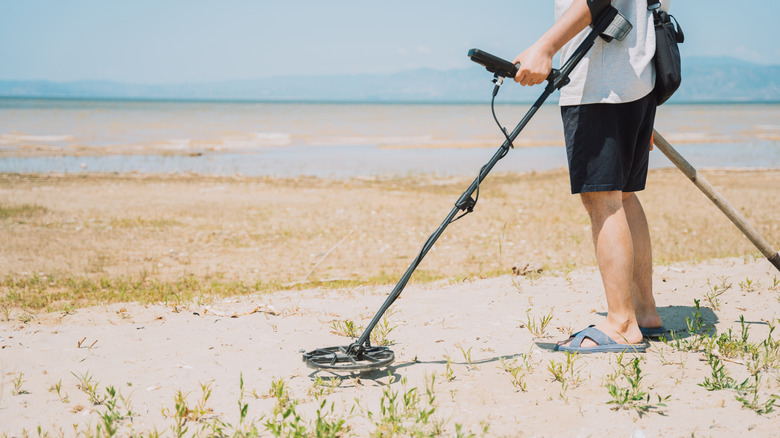Before Finding Hidden Treasure, You Need To Follow This Metal Detector Rule When Traveling
With news headlines (and YouTube videos) that give juicy details on hoards of treasure and rare artifacts found by metal detectorists — aka those with a metal detector — investing in your own equipment and going hunting has never been more appealing. Imagine finding ancient gold coins on a beach in Turkey's turquoise coastal riviera or Anglo-Saxon jewelry in a seemingly deserted and unimportant field in Great Britain. Oh the glory! The possible riches! What a time to be alive! History buffs, we're talking to you. But before you dive into this new hobby gung-ho, there are some important factors to consider: What if you find something dangerous? Or what if you find treasure that can't be brought back home? There are indeed laws and legality to consider, which take some figuring out, as they vary between countries.
The golden rule, which is crucial to know before you invest in any equipment, is to do your research. Research, research, and research some more. As laws are varied from country to country and even state to state within the U.S., you do not want your excitement for this newfound hobby to end up getting you in deep water. Laws are ultimately in place to protect archeology and prevent damage and can involve needing permits, so make sure you give yourself plenty of time to learn local regulations before diving in.
Other considerations before metal detecting while traveling
So what should you research? Start with local laws in the place you intend to visit. In the U.S., for example, it is illegal to use a metal detector, or even take one with you, within a national park. There are national historical parks that are prime spots for civil war buffs, but know that you can't bring your metal detecting device to these old battlefields. Two crucial U.S. federal laws are the 1966 National Historic Preservation Act and the 1979 Archaeological Resources Protection Act, which were designated to protect Native American preserves and sacred lands from removal of any cultural items. To remain on the right side of the law, experienced detectorists recommend heading to private land and gaining permission and permits before looking for treasure. The U.K. is a whole other ballpark, with an old-school law stating that anything you find that's considered to be "treasure" belongs to the crown. That's right — King Charles III himself.
Before you pack your bags and head off to a beautiful lesser-visited island in Italy in search of Roman coins, take heed! Airlines do not generally permit you to travel with a large metal detector as a carry-on item; it's got to be checked in. The wise folk at TSA strongly suggest you check with your individual airline, as different carriers have different rules.
Once you've reached your destination and obtained the correct permits, the dream situation is that your metal detector finds something. Be extremely careful before you go digging — if the find isn't near the surface and requires excavation, you may need to report it to the local authorities. Likewise, if the item is old and could be considered of historical importance, it's report time. With the right research and ethical conduct, this is absolutely a hobby that could take you places.

